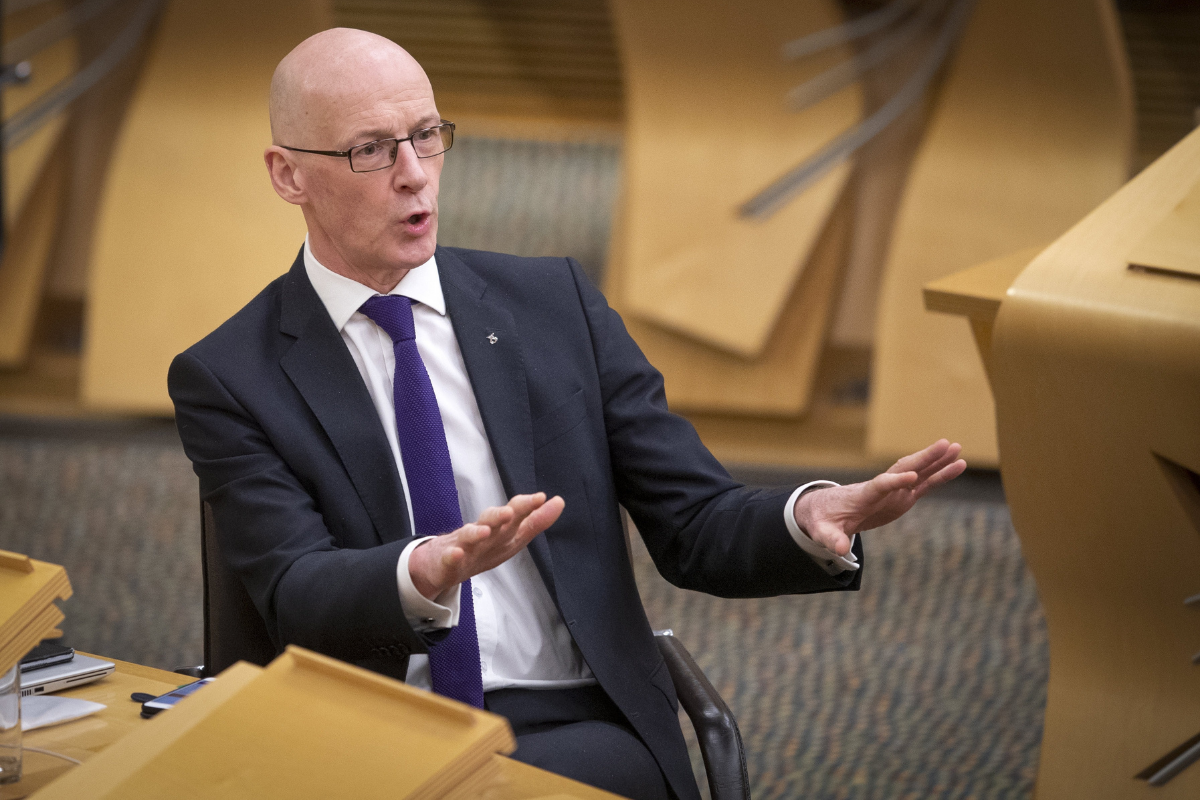
THE Scottish Government has significantly walked back parts of its controversial Covid “power grab” bill, John Swinney has announced.
The Deputy First Minister told MSPs limits would be placed on the so-called Henry VIII powers in the controversial piece of legislation the SNP say will allow the government to better deal with future pandemics or public health emergencies.
Swinney announced the changes on Thursday, in a bid to placate critics who had accused the government of undermining democracy with its initial plans to grant ministers sweeping powers to impose lockdowns and close schools without consulting parliament.
He said the government had made changes to the Coronavirus (Recovery and Reform) Bill so MSPs would be given oversight in the event emergency powers were used.
But the proposed changes did not go far enough for the opposition, who said the legislation still presented the threat of a “power grab” by transferring authority from parliament to ministers without sufficient democratic oversight.
Health Secretary Humza Yousaf (below) said: “Anybody suggesting that the government could impose a lockdown without parliament’s authorisation, hasn’t listened to what the Deputy First Minister has said.”

He rejected the opposition’s calls to draw up draft legislation to have “on the shelf” in the event it is needed because of concerns it would be inadequate to deal with the threat faced.
He also said this could take a matter of days and that his experience as Health Secretary showed him “every day counts”.
Swinney admitted the original version of the bill had failed to “strike the right balance” but said the powers the government would be given by the legislation would be subject to parliamentary approval and would only be used in the event of a public health emergency.
He added: “In relation to the proposed powers to modify primary legislation through future public health protection regulations – the so-called Henry VIII powers – I continue to believe that this power is appropriate and is already subject to significant safeguards.
“However, having considered the views of members, we will bring forward amendments at stage two to add the further restriction that that power will only be available where ministers make regulations under the draft affirmative procedure.
“This would mean parliamentary approval must be in place before any modification to primary legislation takes place.”
Other than the controversial powers to impose lockdown, the bill also provides for “fairly non-contentious” measures such as introducing digital access to services which could previously only be accessed in-person, such as the registration of a birth.
John Mason, SNP MSP for Glasgow Shettleston, said Swinney’s update represented “major concessions” in the light of outcry from civic society organisations.
Meghan Gallacher, the deputy leader of the Scottish Tories, questioned whether the bill was necessary and her Conservative colleague Murdo Fraser pointed out a call for views on the bill had generated around 4000 responses – far higher than most.
Around 90% of these were opposed to the bill before it was amended before the Government.
Jackie Baillie, the deputy leader of Scottish Labour said the bill would have “long-term consequences for our democracy”.
Others claimed the bill would give the Scottish Government sweeping powers without equivalent across the UK, however SNP MSP Jim Fairlie said the Civil Contingencies Act 2004 gave more extensive powers to the Westminster Government.
The Bill also introduces discretion in a housing tribunal to grant more leniency to tenants and allowed ministers to authorise the early release of prisoners in the event of public health emergencies.
Audrey Nicoll, the SNP justice committee convenor, said she was satisfied this sufficiently took into account the level of threat to the public potentially posed by this measure.
The Bill was supported by SNP and Greens MSPs and passed its stage one reading in Parliament on Thursday.
It will be considered by various committees before returning to further debate later this year.







